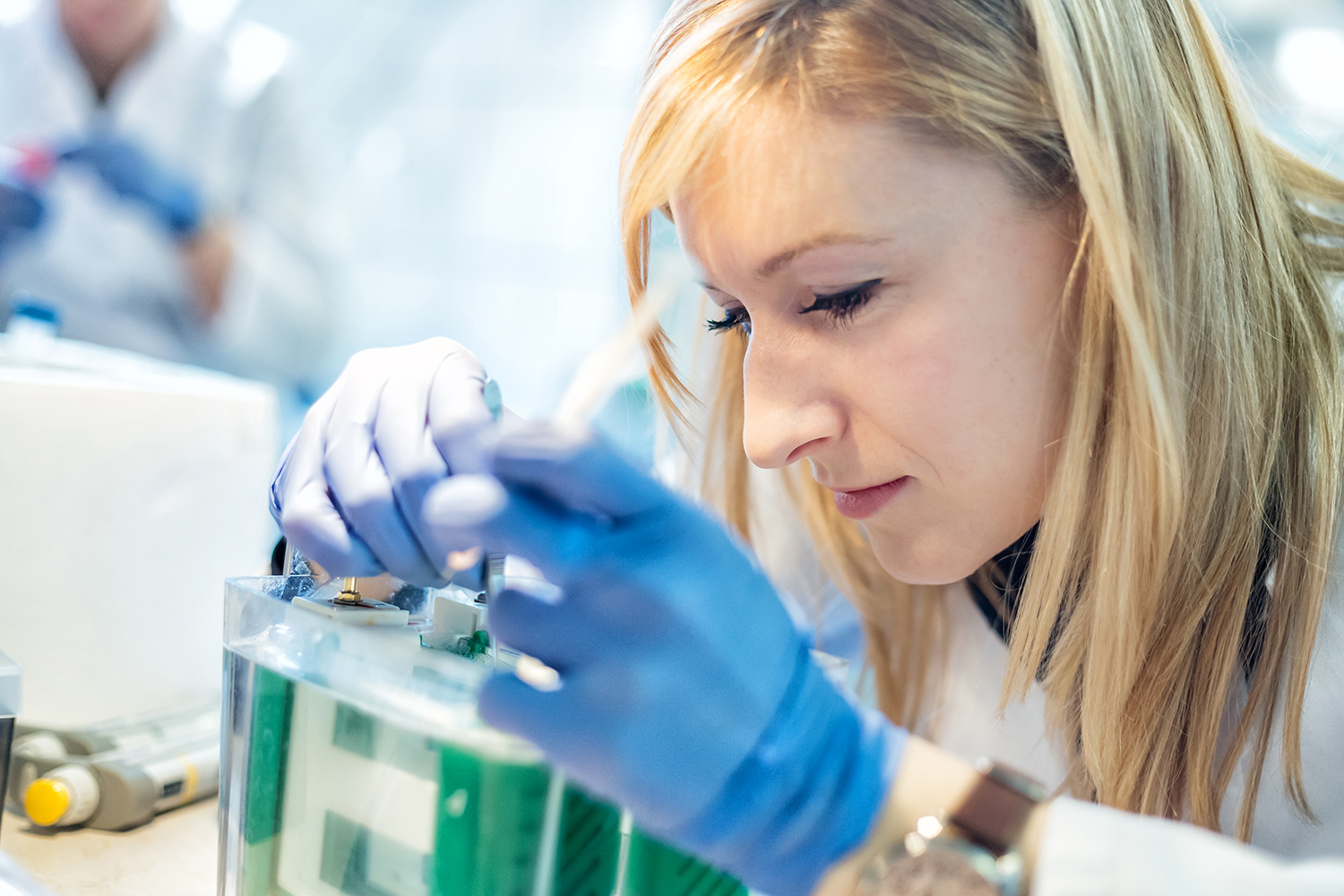Institution:
Institute of Animal Reproduction and Food Research of the Polish Academy of Sciences (IARFR PAS) in Olsztyn (https://www.pan.olsztyn.pl).
Position:
PhD stipend in the project SONATA BIS NCN entitled: „Exploring mechanisms of congenital HCMV infection: replication, spread and latency establishment”.
Project description:
Infection with human cytomegalovirus (HCMV) is a cause of congenital disease. As is the case for all the herpesviruses the life cycle of HCMV can be divided into lytic phase, when the virus is replicating, and the latent phase, in which virus persists in the cell. Part of the project focuses on molecular aspects of HCMV latency and its goal is to determine, if IE1x4 is the main protein of the latent phase responsible for persistence of the virus.
Thus far HCMV latency was mainly studied in hematopoietic progenitor cells, but recently it was shown that the virus can establish latency also in neuronal progenitors, discovery which is important in relation to HCMV-associated congenital disease. Therefore we would like to compare latent viral transcripts expressed in hematopoietic and neuronal progenitors. We also plan to study conditions and stage of differentiation at which neuronal progenitors become the reservoir of latent virus.
HCMV viral particles were shown to have distinct characteristics with regard to infection of and replication in different cell types, depending on the cell of the origin of the viral particle. Thus we intend to examine the influence of the type of virus producing cell on efficiency of infection of different target cells.
Project will combine methods of virology, cell and molecular biology. Following procedures will be used: infections, cloning, RNA sequencing, immunofluorescence staining, fluorescence in situ hybridization (FISH), confocal microscopy and image quantification, chromosome spreads, sucrose gradients and primary cell isolation. Our main interest is to study the mechanisms of congenital infection with HCMV, therefore in majority of experiments two latency models will be used: well established model of hematopoietic progenitors (CD34+), as a control, and the neuronal precursor model, which is not fully established yet and has not been studied much. Part of the project is devoted to developing the neuronal precursor model. To that end we will use iPSC (induced pluripotent stem cells) obtained by reprogramming of fibroblasts.
Description of the tasks:
- Investigation of molecular mechanisms of human cytomegalovirus (HCMV) latency establishment in CD34+ cells and neuronal progenitor cells with focus on IE1x4.
- Investigation of the influence of the type of virus producing cell on efficiency of infection of different target cells.
TYPE of NCN grant:
Sonata BIS – NZ6
Deadline for application:
30.06.2018, 24:00
Form of application:
Via e-mail
Employment conditions:
- Selected candidate will receive a stipend of 3 000 PLN per month
- Place of employment:
- Institute of Animal Reproduction and Food Research
of Polish Academy of Sciences,
Department of Team of Reproductive Pathology and Translational Medicine,
ul. Bydgoska 7,
10-243 Olsztyn, Poland
- Institute of Animal Reproduction and Food Research
- Employment starting date: October 2018
- Length of employment (scholarship): 48 months
Qualifications:
- Masters in microbiology, biotechnology, biology or related discipline;
- Knowledge in the field of molecular and cellular biology;
- Knowledge in the field of virology or microbiology and in vitro cultures;
- Ability to use the following techniques: Western blot, PCR and immunofluorescence staining of proteins in the cell;
- Experience with cell differentiation or working with stem cells is advantageous;
- Ability to communicate easily in English;
- Ability to communicate well and work in a group.
Additional information:
Scholarship will be granted according to the rules described in documents „Regulations on awarding scholarships in NCN-funded research project”.
Interested candidates are asked to provide the following documents:
- Motivation letter;
- CV including list of publications, conference presentations, membership in scientific organizations and other awards;
- MS degree certificate, PhD diploma or certificate of participation in studies at the moment;
- Recommendation letter from a scientific mentor, confirming skills necessary for completing the project;
- Documents confirming proficiency in foreign languages;
- Other documents, that in the opinion of the candidate are important when considering him/her for the position;
- Signed statement: I hereby authorize you to process my personal data included in my job application for the needs of the recruitment process in accordance with the Personal Data Protection Act dated 29.08.1997 (uniform text: Journal of Laws of the Republic of Poland 2002 No 101, item 926 with further amendments).
Applications in English or in Polish should be sent to: dr. Magdalena Weidner-Glunde
(m.weidner-glunde@pan.olsztyn.pl)
Please direct any questions referring to the project directly to the PI of this project:
Dr. Magdalena Weidner-Glunde
Institute of Animal Reproduction and Food Research of Polish Academy of Sciences
Department of Team of Reproductive Pathology and Translational Medicine
ul. Bydgoska 7, 10-243 Olsztyn
Poland
e-mail: m.weidner-glunde@pan.olsztyn.pl
